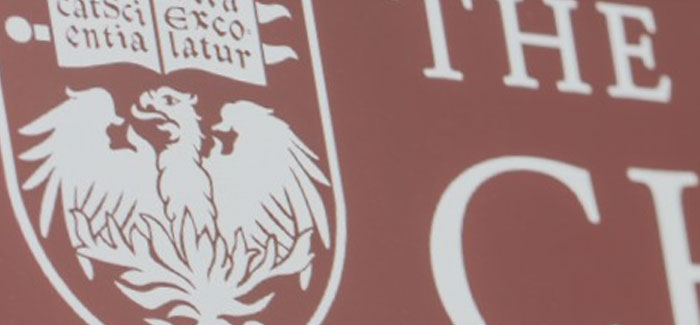
Samantha Fan explores different perspectives through language and music.
Samantha Fan, AM'12, a fourth-year PhD student in psychology, spent the first 16 years of her life in Singapore, something of a diversity utopia. "Singapore is a richly multicultural society with four official languages, and there's very little prejudice in terms of race and ethnicity," Fan says. "You are exposed to so many cultures that you're not bogged down by your own egocentric perspective on life."
When her family moved to Toronto, it was a difficult transition. As she worked to fit in, one constant was music. The daughter of professional musicians and the youngest of three sisters who all studied music, Fan was brought into "the family business" early. "My parents always believed in learning an instrument, but you have to start early when children are not fully conscious of other distractions, and then you get them into a routine," she says. "You know, it's sort of like a trick." Her parents—both violinists—facilitated her musical immersion and path toward becoming a violinist herself: "They performed every week. I went to concerts free; I was backstage. There was music going on in my house 24/7, so it was hard not to get into the zone of practicing."
At age 20, Fan became an assistant concertmaster in a Toronto community orchestra, a group of working professionals. "The first day, I could tell people were thinking, 'You're really young—do you know what you're doing?'" When the conductor asked Fan to demonstrate how a particular violin part should be played, she allayed any doubts about her competency. "People were like, 'OK, she knows.' I was fortunate to find musical scenes where people have been really gracious and accepting of other people's talents."
Moreover, Fan realized that between Singapore, Toronto, and then Chicago, music was a universal language. "I cannot describe the feeling I get when I perform, the fun of interacting with people without words, how we work together to convey the composer's message as we try to bring the piece to life. It's a collaborative effort."
The universality of language is the subject of Fan's thesis; she examines "perspective taking," seeing the world from another's viewpoint. She's studying "whether knowing another language can facilitate one's ability to develop this skill to 'perspective take' much quicker and easier than people who speak one language," she says. Early exposure to languages and cultures, Fan believes, can help people develop an open mind about social groups and thus be more accepting of differing beliefs.
As a child, it took discipline for her to learn the language of music. "After school I had to do my homework and then practice the violin and the piano for one hour each." One time, she recalls, "I really did not like what I was practicing, so I fast-forwarded the clock. I got caught, though," partially due to her failure to change the other clocks in the house. But Fan's parents kept at it. "I fell asleep at every single concert, so my mom used to make me take naps before the Singapore symphony was performing at night so I'd stay awake."
The discipline paid off. Fan, concertmaster at the University Symphony Orchestra, was a winner in UChicago's 2012 concerto competition. In December she performed the notoriously difficult Bruch Violin Concerto no. 1, spending the month practicing or working on her thesis and finding pleasure in both forms of intense work. "I'm able to research, talk with people who aren't into music, and then switch back to music. That's the fun of it. I'm able to reach out to people of different interests at the same time."
In her downtime, Fan plays in a chamber group that includes pianist Alice Chen, a past concerto winner who's a PhD student at Chicago Booth School of Business, and cellist Bonnie Sheu, AB'12, who's in her first year of medical school. Fan also enjoys listening to Adele and spending time with her Pomeranian, Happy, a performer in his own right. "When he sits under the piano, he gets the full blast of the resonance and puts his head up and sings."
Fan sees parallels between her role as concertmaster—the leader of the first violins—and her experience last fall assisting Professor Jasmin Cloutier in the College Core class, The Mind. "I'm the link between the conductor and the orchestra," she says. "You need to be very mindful of other instruments to make sure we are performing together as a group." With teaching, she says, "I have the mentality that we are all learning, and everyone has something to say. That sets a more comfortable mood: people are more willing to speak up, voice their opinions, and not worry about saying something wrong."
Being concertmaster also has had social benefits. "It's definitely helped me listen and be more comfortable with people," she says. Being more comfortable, in turn, has helped her navigate the local notoriety her music career has earned her in the classroom. Students will bring up music and ask her perspective. "They know I play violin even though I never talked to them about it," she says. "I'm not used to having so much publicity, but at the same time I appreciate it, because it definitely brought a full house to the concert."
Which just goes to prove Fan's theory: "I see music as communication. Playing in chamber groups and ensembles made me realize that music is the language to bypass human barriers."
